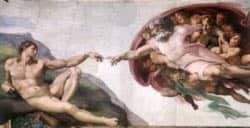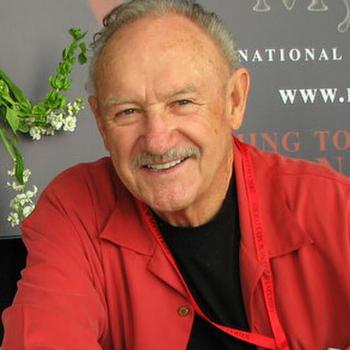
There are two forms of excess; to exclude reason and to admit nothing but reason. ~ Blaise Pascal
"I know the plans I have for you," says the Lord. "Plans of fullness, not of harm. To give you a future, and a hope." ~ Jeremiah 29:11
Sufficient unto the day is the evil thereof. ~ Matthew 6:34
A couple of years ago, in pondering the Feast of the Immaculate Conception, I wrote:
"If one goes back to the first lines of Genesis and to the first lines of John's Gospel we see the same images -- emptiness, a Word, movement. It is natural to think that Christ's birth is a reflection of the whole ‘big bang' of Creation; the first one made the world and everything in it, the second returned it to its origins, wedded in covenant. (I am one of those Christians completely comfortable with the idea that the Creation story in Genesis is simply another way of explaining our connections to stardust)."
The ultra-simplistic secular conventional wisdom -- built by straw-men-loving politicians and those helpers in the press who have no difficulty distorting positions in order to sustain a narrative -- is that "Christians hate science."
This is untrue, of course. That bigoted meme is simply a handy stick meant to cower into silence those who would question an ideological crisis de jour/cause célèbre. I wonder how many people who accept the narrative realize that the inventor of the microscope was a Dutch Reformed Christian?
The Creationism/Intelligent Design vs. Evolutionism debate -- often reduced to a few snorting soundbites caricaturing "the other side's" position -- is a politicized mess, but despite a few stone-skips in the water of history (and a general mutual wariness that has to do with what might be called "issues of eminent domain") science and faith have managed to co-exist and even co-operate, because they are both in the business of mystery and wonder. And, as we hear from St. Gregory of Nyssa, ". . . only wonder leads to knowing."
When scientists and the religiously-inclined are seriously committed to serving wonder in good faith, there is often tremendous synergy; it has not been unusual for scientists and mathematicians to hold deep religious beliefs. Gregor Mendel, the so-called "Father of Genetic Sciences" was an Augustinian monk. Georges Lemaître, another priest, applied Einstein's Theory of Relativity to Cosmology. Theodosius Dobzhansky (evolutionary synthesis) was a Russian Orthodox communicant. Blaise Pascal was a physicist whose religious writings never fail to stir (and are put to very good use in Piers Paul Read's terrific book of essays, Hell and Other Destinations). Francis S. Collins, recently selected by President Barack Obama to head the National Institute of Health is one modern scientist whose work slowly brought him to faith, and there are many others who have found some broadness of belief (from Deism to full-on doctrinal observance) through the strict confines their scientific method.





